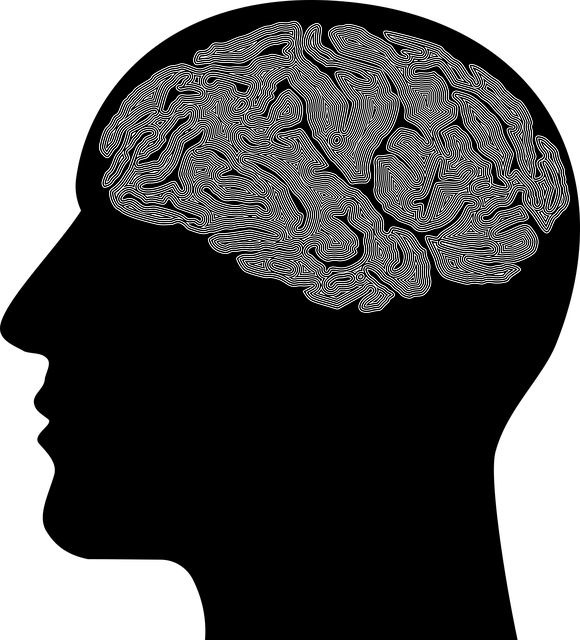Louisville Alcohol Abuse Therapy is a comprehensive solution for co-occurring mental health disorders and alcohol addiction, emphasizing education, emotional regulation, and community support. Recognizing signs like excessive drinking and behavioral changes is crucial, with healthcare providers implementing burnout prevention strategies. The holistic approach includes initial assessments, evidence-based therapies (CBT, MI), aftercare programs, and stress management techniques to promote long-term recovery and mental wellness within the supportive Louisville community network.
Mental wellness is a cornerstone of overall health, and addressing alcohol abuse in Louisville requires a multifaceted approach. This article explores strategies for promoting mental wellness, focusing on Louisville alcohol abuse therapy as a critical component. We delve into understanding the foundation of mental health, recognizing signs of abuse, and guiding individuals through professional therapy. Additionally, we highlight post-therapy resilience building and community support resources essential to sustaining recovery in Louisville.
- Understanding Mental Wellness: The Foundation of Overcoming Alcohol Abuse in Louisville
- Recognizing the Signs: Identifying When Someone Needs Alcohol Abuse Therapy
- The Role of Professional Alcohol Abuse Therapy in Louisville: A Step-by-Step Guide
- Building Resilience: Strategies for Maintaining Mental Wellness After Therapy Ends
- Community Support and Resources: Strengthening Louisville's Approach to Mental Wellness Promotion
Understanding Mental Wellness: The Foundation of Overcoming Alcohol Abuse in Louisville

In Louisville, understanding mental wellness is a crucial foundation for overcoming alcohol abuse. Alcohol often serves as a coping mechanism for individuals struggling with underlying mental health issues, such as depression or anxiety. By addressing these co-occurring disorders through comprehensive therapy and support networks, Louisville Alcohol Abuse Therapy plays a vital role in helping clients achieve long-term recovery.
Reducing the stigma surrounding mental illness is essential in this context. Louisville Alcohol Abuse Therapy fosters an environment where individuals feel comfortable seeking help for both alcohol abuse and mental health challenges. Through education, open dialogue, and supportive communities, these efforts aim to promote emotional regulation and enhance overall well-being. This holistic approach recognizes that effective recovery involves addressing not just the addiction, but also the underlying causes and contributing factors of depression prevention in Louisville.
Recognizing the Signs: Identifying When Someone Needs Alcohol Abuse Therapy

Recognizing when someone needs Louisville Alcohol Abuse Therapy is a crucial step in supporting their mental wellness journey. The signs can be subtle and often vary from person to person, but there are common indicators to look out for. One of the primary signals is excessive drinking or an inability to control alcohol consumption, which may lead to binging or blackouts. Additionally, changes in behavior, such as increased irritability, social withdrawal, or a significant drop in performance at work or school, could suggest an underlying problem.
The absence of self-care and resilience building can also be red flags. If someone neglects their basic needs, like maintaining a healthy sleep schedule or engaging in regular physical activity, it might indicate they’re struggling with alcohol abuse. Burnout prevention strategies for healthcare providers are relevant here, as individuals battling alcohol addiction often need professional help to develop healthier coping mechanisms and regain control of their lives.
The Role of Professional Alcohol Abuse Therapy in Louisville: A Step-by-Step Guide

In Louisville, professional alcohol abuse therapy plays a pivotal role in promoting mental wellness and supporting individuals on their journey to recovery. The process typically begins with an initial assessment where therapists evaluate the severity of the individual’s condition and develop a tailored treatment plan. This involves exploring the underlying causes, such as trauma, stress, or mental health disorders, that may have contributed to alcohol abuse. Once the foundation is set, therapy sessions can include various evidence-based practices. Cognitive Behavioral Therapy (CBT) helps individuals identify and change negative thought patterns associated with substance abuse, while Motivational Interviewing (MI) enhances motivation for behavioral change.
A step-by-step guide to Louisville Alcohol Abuse Therapy might look like this:
1. Assessment: Meet with a licensed therapist who will conduct a comprehensive assessment to understand the extent of alcohol abuse and related mental health issues.
2. Treatment Planning: Based on the assessment, therapists design a personalized treatment plan incorporating techniques like CBT or MI. This could include setting goals, learning coping strategies, and developing a support system.
3. Therapy Sessions: Regular sessions focus on addressing underlying causes, processing emotions, and acquiring skills to manage cravings and triggers. Techniques such as mindfulness meditation can be integrated to foster emotional well-being promotion.
4. Aftercare and Follow-up: Post-therapy, continued support through aftercare programs ensures sustained recovery. This may involve group therapy, peer support groups, or ongoing individual sessions to maintain mental wellness.
Building Resilience: Strategies for Maintaining Mental Wellness After Therapy Ends

After completing Louisville Alcohol Abuse Therapy, clients often wonder how to sustain their mental wellness in the long term. Building resilience is a key strategy to ensure that hard-won progress continues. This involves adopting healthy coping mechanisms and stress management techniques learned during therapy. For instance, regular exercise, mindfulness practices, and maintaining a structured routine can help individuals manage triggers and emotions effectively.
Additionally, staying connected with support systems, like peer groups or community outreach programs, provides ongoing encouragement and accountability. Engaging in activities that foster social connections and self-care can boost confidence and resilience. The risk assessment for mental health professionals plays a crucial role here, guiding practitioners to identify potential risks and implement strategies tailored to individual needs. This holistic approach ensures that individuals equipped with tools from therapy can navigate life’s challenges with enhanced coping abilities.
Community Support and Resources: Strengthening Louisville's Approach to Mental Wellness Promotion

Louisville’s community support network plays a pivotal role in promoting mental wellness and countering issues like Louisville alcohol abuse therapy. The city has recognized the importance of fostering a supportive environment where individuals can access resources tailored to their unique needs. This inclusive approach involves various community-based organizations, healthcare providers, and local initiatives dedicated to raising awareness and reducing the stigma surrounding mental illness.
By strengthening these connections, Louisville takes a proactive step towards enhancing emotional regulation and self-esteem improvement. The collective effort ensures that those facing mental health challenges have accessible support systems, enabling them to seek help without barriers. Such initiatives not only cater to immediate therapy needs but also contribute to long-term mental wellness promotion, fostering a resilient community where individuals can thrive with the right guidance and resources.
Louisville, through comprehensive approaches that include education, professional therapy, community support, and accessible resources, can significantly promote mental wellness and overcome alcohol abuse. By understanding the foundational links between mental health and substance abuse, recognizing signs early, and implementing effective strategies post-therapy, the city fosters a resilient and supportive environment. Community involvement and readily available Louisville alcohol abuse therapy ensure that individuals receive the necessary care, ultimately enhancing the overall well-being of its residents.










